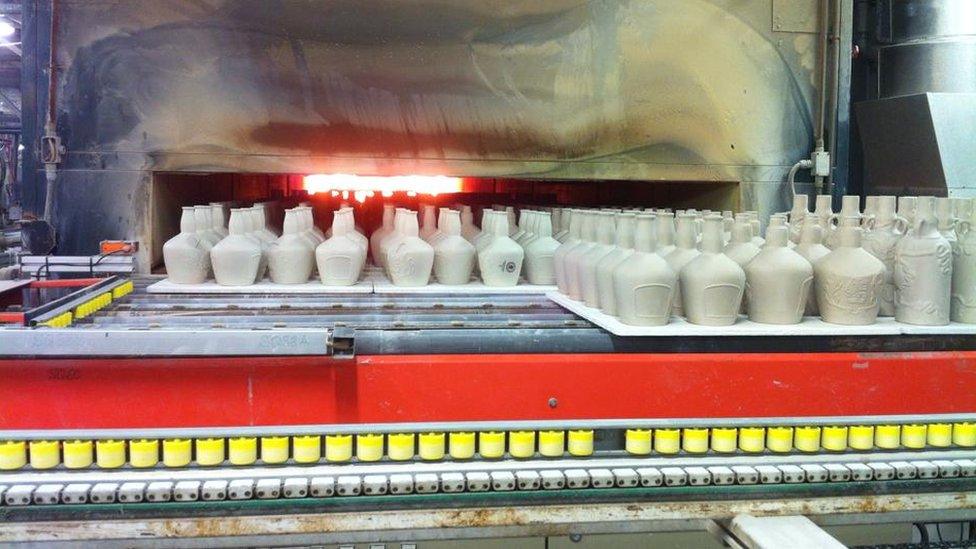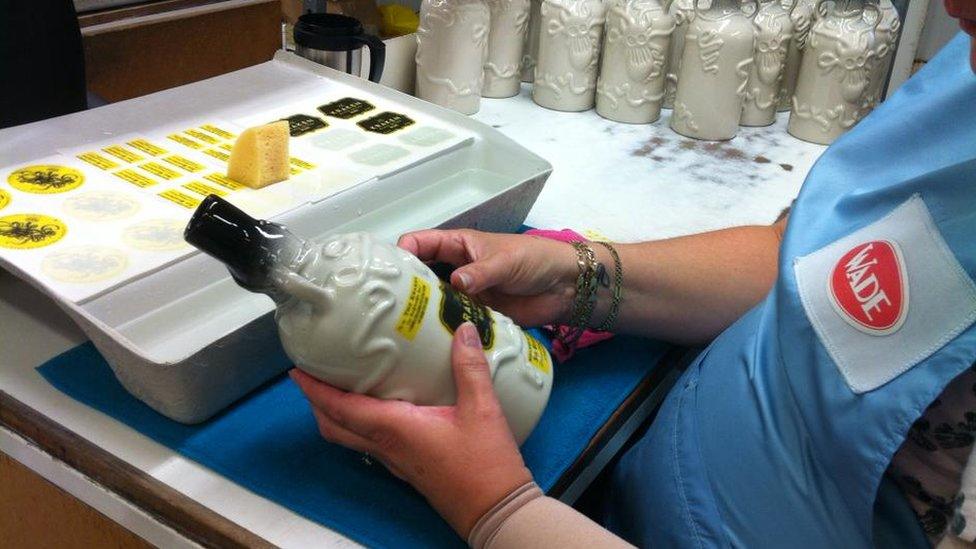Rising energy costs 'destroying' Stoke-on-Trent ceramic firms' profits
- Published

Wade Ceramics uses a lot of energy such as in their kilns when they produce their ceramic bottles
Ceramics firms in Stoke-on-Trent are calling on the government to help with rising energy costs as an MP warned bills are "destroying" any profits.
Stoke-on-Trent North MP Jonathan Gullis has written to Business Secretary Kwasi Kwarteng to ask for an urgent meeting on the issue.
The boss of one city firm, Wade Ceramics, said its annual energy costs had risen by £500,000.
The government said it was exploring further ways to cut firms' costs.
"It is very, very difficult," Wades managing director Paul Farmer said.
"We focus on the little things and try to get people to switch everything off, but it is such a small drop in the ocean when it comes to the level of usage the industry has.
"It is huge and we have had no help from the government at all."
One of its factories runs 24-hours a day and he said the only action it could take to cut energy use was to stop production.
Ceramics firms are generally energy-intensive industries, because of the amount of power needed to fire kilns.

Wade ceramics managing director Paul Farmer urged the government to step in and help with rising energy costs
At Wade Ceramics' second factory, Mr Farmer said the firm had tried to cut costs by turning lights off at night and running kilns overnight to take advantage of lower charges.
The workforce had a pay rise in July, but Mr Farmer said the firm could not afford to cover the rising cost of inflation for staff.
"We can't afford to, but we have at least made an effort. It is the biggest pay rise we have probably given them for the last 10-15 years, but it is tough and it is brutal for them," he said.
The firm also investigated installing a combined heat and power plant, to reuse heat generated from producing electricity, but Mr Farmer said the initial cost would be £800,000.
"If the government could step in and help there, that not only creates or saves us a lot of money, but it would also give energy back to the grid at a lower price," he said.
In his letter to the business secretary, Mr Gullis said ceramic firms were "feeling the pain" from rising gas prices and, despite increased orders, these costs were "destroying" any profits.
He asked Mr Kwarteng to consider a government-backed loan or grant scheme for the industry.
The government said more than £2bn had been provided to industry to help with the cost of energy and it had doubled the budget of its electricity relief scheme.
Earlier this month it said it was considering a plan to provide more help to energy-intensive industries.

Follow BBC West Midlands on Facebook, external, Twitter, external and Instagram, external. Send your story ideas to: newsonline.westmidlands@bbc.co.uk, external
Related topics
- Published25 August 2022

- Published21 August 2022

- Published4 February 2022

